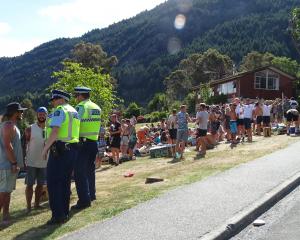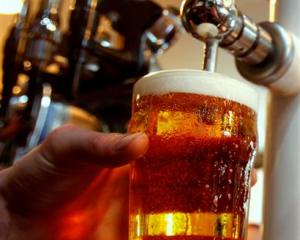There have always been the wowsers and the boozers. John de Bueger looks at alcohol abuse in New Zealand.
The School-College rugby match between Christchurch Boys' High School and Christ's College has long been a highlight of the Christchurch winter season.
During my school days, the crowd was swollen by hundreds of old boys from both schools, along with a few posers at this important milestone on the social calendar for Canterbury's elite.
Imagine one's surprise to learn that this year both headmasters have decreed that nobody under 22 will be admitted - in an effort to curb the drunken mayhem that has marred recent encounters.
This is just a further minor example of the misuse of alcohol by a minority impacting on what was traditionally a boisterous, good-natured affair, and flags a pressing need for reform of our liquor laws.
The Law Commission's recent report was thus timely, and given the public interest, the media had a field-day trying to double-guess both the recommendations - and what the Cabinet will eventually sign off on.
On Afternoons with Jim Mora, a panelist made the salient point that the anti-booze brigade must have orchestrated their networking.
The airways were saturated with their slant: Monday the wowsers, Tuesday the police, Wednesday a doctor from A& E, Thursday Alac, etc, - but then, home-grown prohibitionists have long been numerous, vocal and media-savvy.
Given our hard-drinking colonial legacy, public opinion has wavered ever since between two permanently entrenched extremes: the boozers and the wowsers.
Only the votes of overseas servicemen prevented the temperance movement forcing United States-style prohibition on this country at the end of the World War 1 - with all the opportunities that offered for organised crime.
Given the damage caused by the misuse of booze, and particularly, highly visible teenage binge-drinking, there is widespread acceptance that the system needs tweaking.
The grab-bag of measures available to this end include increased excise duty, statutory minimum prices, a raised drinking age, restricted opening hours, hammering alco-pops, curtailing advertising, and a drastic cut in the number of liquor outlets.
Most of the population can enjoy a social drink without making a nuisance, and any attempt to change deeply ingrained cultural attitudes because of loutish teenage behaviour is doomed.
Prohibition does not work, has never worked, and can be confidently predicted to fail in the future.
No amount of propaganda will ever convince the law-abiding majority that there is anything wrong with having a beer when you get home followed by a couple of glasses of wine over dinner.
Unpalatable as fundamental home-truths might be to wowsers, the fact remains that mankind seems hard-wire programmed to befuddle the brain as an escape from everyday reality - and the worse real or imagined horrors are, then the harder the drugs that get used.
It is a market that has proved impossible to stamp out.
Making booze illegal just drives it underground, and banning it for religious reasons results in hordes of Muslims heading for Dubai or Europe.
When subjects like ameliorating teenage excess arise, one invariably reflects back on one's own youth - and I'm afraid few of us will be bereft of distant memories that cannot be recalled with pride.
When my generation was at university, the minimum drinking age was 21 - and the 6 o'clock swill reigned supreme.
Out of sheer practicality, most undergraduates were obliged to break the law twice - by consuming not inconsiderable quantities of Speight's, both under age and after hours.
This behaviour met with little public opprobrium, because there has long been widespread societal acceptance that carousing was normal (under-21) student behaviour.
In Hamlet, 400 years ago, Shakespeare has a university student saying, "We will teach you to drink deep ere you depart . . ."
Most us, reflecting on past misdemeanours, eventually grew out of what were mainly youthful high jinks - and furthermore, confidently expect the same process to repeat itself in today's young.
So while we can flag away raising the drinking age above 19, the same logic does not apply to the ridiculous 24-hour availability of booze, and particularly in lower socioeconomic areas.
Booze problems only spiralled out of control when alco-pops were targeted at underage drinkers, supermarkets (and superettes) started selling the stuff (with discounts), and liquor outlets were allowed to proliferate.
These are the three areas where the clock needs turning back.
John de Bueger is a New Plymouth writer and engineer.





